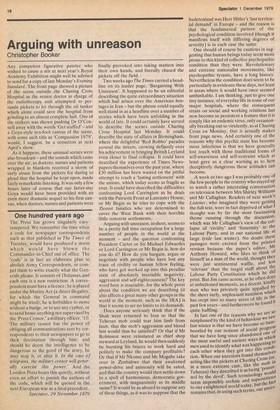One hundred years ago
The Press has grown singularly easytempered. We remember the time when a code for newspaper correspondents such as that published in The Times of Tuesday, would have produced a storm which would have blown the Commander-in-Chief out of office. The 'code' is in fact an elaborate plan to abolish Army. Correspondents, or compel them to write exactly what the Generals please. It consists of 18clauses, and each one is a new restriction. A correspondent must have a licence; he is placed under the Mutiny Act (a direct illegality, for which the General in command might be tried); he is forbidden to move without a badge, or to use any cypher, or to send home anything not supervised by the Tress Censor,' a military officer. '10. The military censor has the power of obliging all communications sent by correspondents to their newspapers to go to their destination through him; and should he deem the intelligence to be dangerous to the good of the army, he may stop it, or alter it. In the case of telegrams, the military censor will generally exercise this power.' And the London Press bears this quietly, without even an effort to punish the authors of the code, which will be quoted in the next European war as a final precedent.
Spectator, 29 November 1879











































 Previous page
Previous page